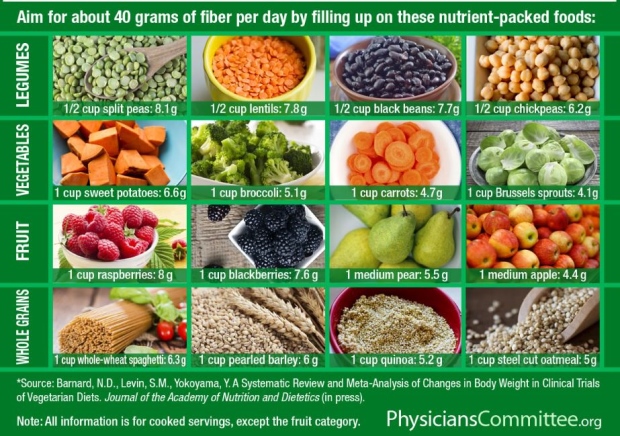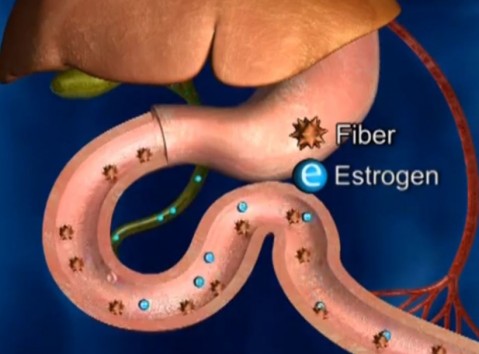DrCarney.com Blog
Fiber Stops the Merry-Go-Round of Recirculation
We know fiber is "good" for us, but what does it actually do? Fiber plays many roles in our health. For one, it stabilizes our blood sugar which helps stabilize our energy and moods. Easier trips to the bathroom also come courtesy of fiber bulking up body waste. But did you know that fiber binds to by-products and wastes filtered from our bloodstream and removes them from our system? Here's how.
Fiber helps prevent enterohepatic recirculation. "Entero" means intestines. "Hepatic" refers to the liver. Our liver is a busy organ. It is constantly filtering our blood, searching for substances that don't need to be there. When our liver finds something which needs to be removed, it sends it down the bile duct as it travels to the intestines. This is where fiber becomes important. If we have eaten enough fiber, that fiber will be in our intestines when the unwanted substance arrives. The fiber will trap the substance and carry it through the intestines and straight out of our body. However, if we haven't eaten enough fiber, the substance will hang around in our intestine and eventually be reabsorbed into the bloodstream and recirculated through our body. If our diet is lacking in fiber, this waste product can go through the process and recirculate many times, resulting in a flood of unwanted substances filling our bloodstream.
Fiber Removes Waste
What types of substances does fiber help remove?
- Pharmaceuticals
- Excess estrogen
- Excess cholesterol
While we expect that medications would need to be removed from the system, we may not realize that a natural hormone such as estrogen may also be considered an unwanted substance. When there is too much of it in our bloodstream, our liver recognizes the overabundance and filters out the excess. Similarly, our body manufactures cholesterol to be used in various metabolic purposes. However, cholesterol can build up in our bloodstream, especially when we add cholesterol from dietary sources to the cholesterol our body naturally makes. The liver removes excess cholesterol circulating through our blood and discards it into the intestinal tract.
More Fiber = Less Risk of Disease
Preventing enterohepatic recirculation is one way fiber helps prevent disease. Without fiber, excess cholesterol recirculates, raising our blood lipid levels and setting us up for the dangerous risks of cardiovascular disease. Without fiber, excess estrogen recirculates, bringing with it the increased risks of breast cancer and prostate cancer.
All animal products — meat, fish, eggs, and dairy products — are fiber-free foods. Processed foods often have very little fiber. Meanwhile, whole-plant foods are abundant in fiber. Neal Barnard, MD, founding president of PCRM, provides the following infographic which helps us make good choices:
 Low-fat, whole plant foods free from added oil are nature's gifts to us. They offer our best defense against cardiovascular disease, cancer, high blood pressure, arthritis, and a host of other diet-related illnesses.
Low-fat, whole plant foods free from added oil are nature's gifts to us. They offer our best defense against cardiovascular disease, cancer, high blood pressure, arthritis, and a host of other diet-related illnesses.
My blog, Fiber's Many Unknown Benefits, which features a short video from Dr. Barnard, will help you discover more about how fiber can keep you disease free. Or visit my Starch-Smart® page to learn more about eating From Sun - to Plant - to Plate.
You might also enjoy:
(1) Fiber's Role in Preventing Breast Cancer
(2) Isn't Some Cholesterol Actually Healthy?
(3) PCRM Power Plate - Fill up on Fiber
Scroll Down Page to Leave Comments

Want to Make Lifestyle Changes?
Not sure how to start? The good news is that Help is Only a Click Away! We invite you to join Dr. Carney's Helpful Sharing Community.
Image Credit - Neal Barnard, MD Physicians Committee for Responsible Medicine
When you subscribe to the blog, we will send you an e-mail when there are new updates on the site so you wouldn't miss them.




